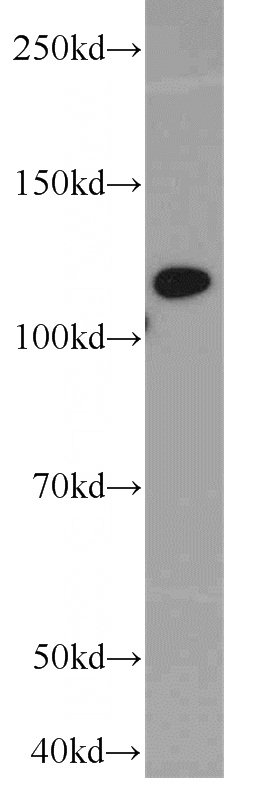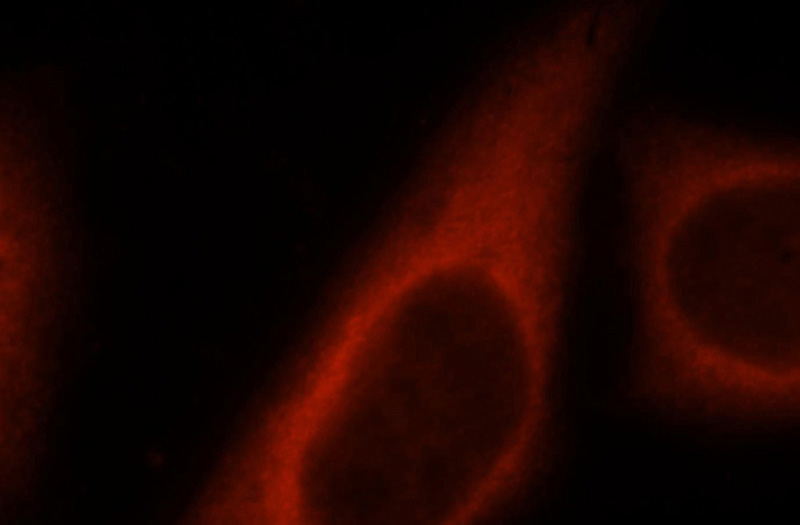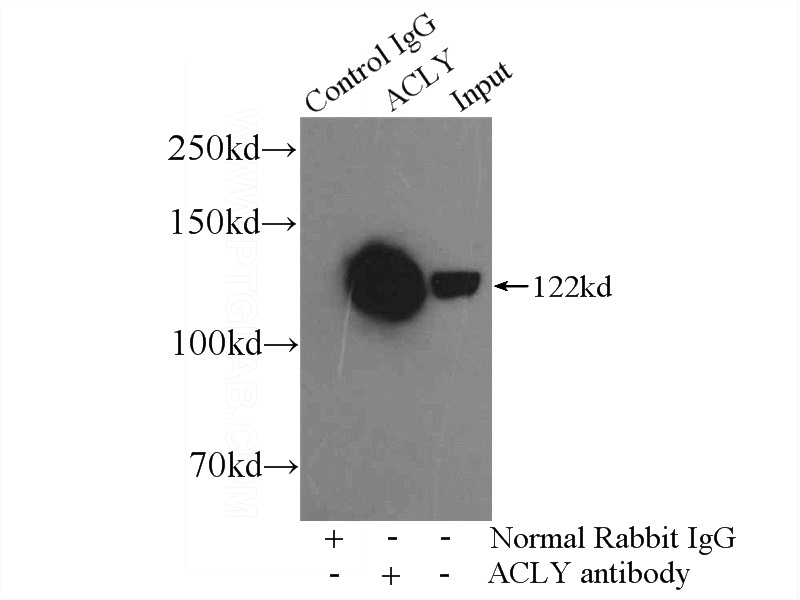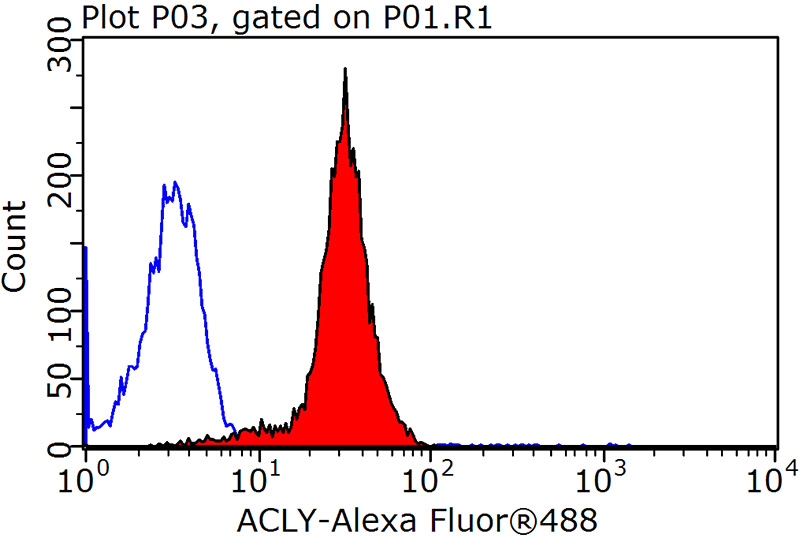-
Product Name
ATP citrate lyase antibody
- Documents
-
Description
ATP citrate lyase Rabbit Polyclonal antibody. Positive IF detected in HepG2 cells. Positive FC detected in HepG2 cells. Positive WB detected in K-562 cells. Positive IP detected in K-562 cells. Observed molecular weight by Western-blot: 110-120kd
-
Tested applications
ELISA, WB, IF, FC, IP
-
Species reactivity
Human,Mouse,Rat; other species not tested.
-
Alternative names
ACL antibody; ACLY antibody; ATP citrate (pro S ) lyase antibody; ATP citrate lyase antibody; ATP citrate synthase antibody; ATPCL antibody; Citrate cleavage enzyme antibody; CLATP antibody
-
Isotype
Rabbit IgG
-
Preparation
This antibody was obtained by immunization of ATP citrate lyase recombinant protein (Accession Number: XM_005257395). Purification method: Antigen affinity purified.
-
Clonality
Polyclonal
-
Formulation
PBS with 0.02% sodium azide and 50% glycerol pH 7.3.
-
Storage instructions
Store at -20℃. DO NOT ALIQUOT
-
Applications
Recommended Dilution:
WB: 1:500-1:5000
IP: 1:500-1:5000
IF: 1:10-1:100
-
Validations

K-562 cells were subjected to SDS PAGE followed by western blot with Catalog No:108336(ACLY antibody) at dilution of 1:1000

Immunofluorescent analysis of HepG2 cells, using ACLY antibody Catalog No:108336 at 1:25 dilution and Rhodamine-labeled goat anti-rabbit IgG (red).

IP Result of anti-ACLY (IP:Catalog No:108336, 4ug; Detection:Catalog No:108336 1:1000) with K-562 cells lysate 3200ug.

1X10^6 HepG2 cells were stained with 0.2ug ACLY antibody (Catalog No:108336, red) and control antibody (blue). Fixed with 90% MeOH blocked with 3% BSA (30 min). Alexa Fluor 488-congugated AffiniPure Goat Anti-Rabbit IgG(H+L) with dilution 1:1500.
-
Background
ACLY(ATP-citrate synthase) is also named as ACL. It is the primary enzyme responsible for the synthesis of cytosolic acetyl-CoA. ACLY serves as not only a target in oxygenated cells for suppression of lipid synthesis and histone acetylation, but also as a susceptible target in hypoxic cells to restore inhibition of glycolysis. In nonsmall cell lung carcinoma and hepatocellular carcinoma ,ACLY is overexpressed compared with normal parenchyma suggesting that ACLY may represent a common target among highly malignant tumors(PMID:19795461). This protein has 2 isoforms produced by alternative splicing.
-
References
- Yu Y, Maguire TG, Alwine JC. Human cytomegalovirus infection induces adipocyte-like lipogenesis through activation of sterol regulatory element binding protein 1. Journal of virology. 86(6):2942-9. 2012.
- Chittaranjan S, Chan S, Yang C. Mutations in CIC and IDH1 cooperatively regulate 2-hydroxyglutarate levels and cell clonogenicity. Oncotarget. 2014.
- Chittaranjan S, Chan S, Yang C. Mutations in CIC and IDH1 cooperatively regulate 2-hydroxyglutarate levels and cell clonogenicity. Oncotarget. 5(17):7960-79. 2014.
- Sun H, Zhu A, Zhang L, Zhang J, Zhong Z, Wang F. Knockdown of PKM2 Suppresses Tumor Growth and Invasion in Lung Adenocarcinoma. International journal of molecular sciences. 16(10):24574-87. 2015.
- Wang MD, Wu H, Fu GB. Acetyl-CoA carboxylase α promotion of glucose-mediated fatty acid synthesis enhances survival of hepatocellular carcinoma in mice and patients. Hepatology (Baltimore, Md.). 2015.
Related Products / Services
Please note: All products are "FOR RESEARCH USE ONLY AND ARE NOT INTENDED FOR DIAGNOSTIC OR THERAPEUTIC USE"
